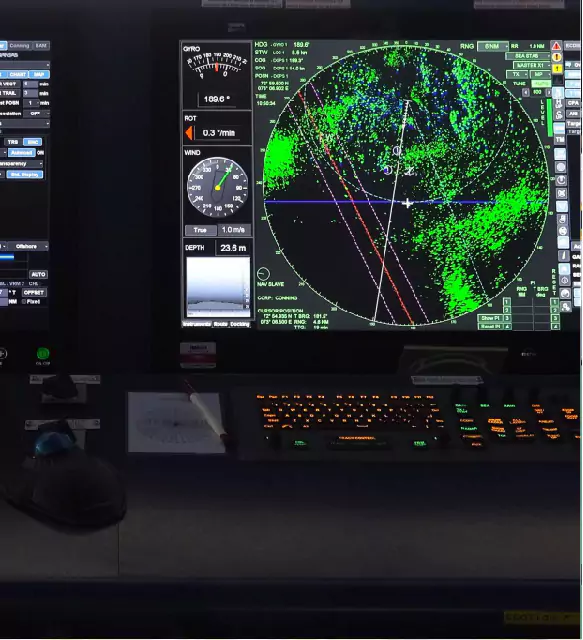Contents
- 1 Leading Ship Crew Training & Certification Coordination in Bangladesh for Success
Leading Ship Crew Training & Certification Coordination in Bangladesh for Success
Seafarers training and certification coordination ensures that team members meet industry standards. It involves scheduling, tracking, and managing training programs and certifying skills.
Bangladesh has historically served as a hub for international shipping, with the Bay of Bengal cradling it. It is an excellent place for extensive ship crew training because of its long coastline and rich maritime history. Bangladesh is well-positioned to provide seafarers with exceptional training and certification because of its modern training facilities, thriving shipping sector, and skilled naval personnel.
Get the excellent training from maritime institutes and academies
Our crew members at Compass Shipping are of the highest quality; they have developed their skills at some of Bangladesh’s most prestigious maritime academies and colleges. We make sure that our crews are trained and accredited by reputable institutions since we recognize the critical role that extensive knowledge and rigorous training play in the marine business. The following are the epicenters of nautical brilliance where our crews receive top-notch instruction:
Top Government Maritime Academies:
Top Government Maritime Academies:
- Bangladesh Marine Academy: The Bangladesh Marine Academy, a cornerstone of maritime education, is known for producing marine professionals who are not only skilled at navigating the waters but also capable of leading with integrity and knowledge.
- National Maritime Institute: Another great source of nautical information is the National Maritime Institute, which provides a wide range of courses that mold our crew members into adaptable and durable sailors who are prepared to face the ever-changing demands of the maritime industry.
- Bangladesh Marine Fisheries Academy: The Bangladesh Marine Fisheries Academy, a specialized organization that blends maritime instruction with fisheries education, guarantees that our sailors are also knowledgeable about the most effective and environmentally friendly techniques used in the fishing industry.
Government-Approved Training Institutes:
Our commitment to comprehensive training extends to our collaboration with government-approved institutes known for their rigorous curriculums and modern training methodologies.
- M.I.S.T. (Maritime Institute of Science & Technology): M.I.S.T. places a strong emphasis on fusing scientific concepts with marine operations, making sure that our crew members are knowledgeable about the most recent technical developments in the sector.
I.I.M.T. (International Institute of Maritime Technology): When it comes to maritime education, I.I.M.T. stands out for its worldwide viewpoint and international standards, which equip our personnel to perform exceptionally well on any vessel flying any flag.
B.I.M.T. (Bangladesh Institute of Marine Technology): By putting a strong emphasis on technical knowledge and practical skills, B.I.M.T. gives our seafarers a solid foundation in marine technology and operations.
In addition to these institutions, we also collaborate with over ten other government-approved maritime academies, each contributing unique strengths and specializations to our training portfolio. This diversity ensures that our crews bring a broad spectrum of skills and a depth of knowledge to your fleet, setting new benchmarks for performance and safety at sea.
Certification Coordination Services – Ensuring Global Compliance
With the help of our certification coordination services, you can navigate the complex waters of international maritime rules with ease. We communicate with regulatory bodies to guarantee that every certification—from the basic STCW to specialized endorsements—is a symbol of proficiency and worldwide compliance.
Bangladesh's Commitment to Maritime Safety and Standards
In Bangladesh, maritime safety is not a checkbox but a pledge. Training aligned with the Bangladesh Department of Shipping (DOS) guidelines is our baseline, from which we only aim higher.
Aligning with Global Guidelines
Our training programs are rigorously crafted to meet the International Maritime Organization (IMO) regulations. We prepare our graduates for audits and inspections, ensuring they are not just certified but genuinely competent.
We look forward to Working with you!
A well-designed crew training and certification strategy facilitates professional development, ensuring every team operates at peak efficiency with the most up-to-date expertise.

Frequently Asked Questions.
Seafarers must possess a seafarer’s identification and record book (or CDC), a passport, the relevant STCW certifications, a medical fitness certificate, and any visa required for travel to and from the countries they will work in.
Required certifications for Bangladeshi seafarers include
- STCW-compliant certificates,
- a CDC issued by Bangladesh, and other countries authorized CDC also applicable for Bangladesh seafarers
- specialized training endorsements for specific vessel types or functions (as required)
Maritime training programs in Bangladesh regularly update their curriculums to align with the latest IMO conventions and local maritime laws, ensuring seafarers meet current global standards and regulations.
The minimum requirements for seafarers include
- being of legal working age,
- passing a medical fitness test, flag medical (as per required)
- completing basic safety training per STCW standards, and
- holding a valid seafarer’s book or CDC.
A CDC, or Continuous Discharge Certificate, is a seafarer’s identity document issued by maritime authorities. It serves as a record book of a seafarer’s career, documenting their service on board ships, and is essential for securing employment in the shipping sector.
Non-Bangladeshi nationals can receive support such as visa assistance, accommodation help, language translation services, and local guidance to ensure a smooth training experience in Bangladesh.
Embrace training coordination to chart a course for excellence.
Navigating the complexities of crew training and certification requires diligence. With a proper coordination plan, safety and efficiency soar, benefiting both personnel and operations. Stay ahead in maritime compliance; invest in continuous crew development. Remember, skilled teams drive the industry’s success.


